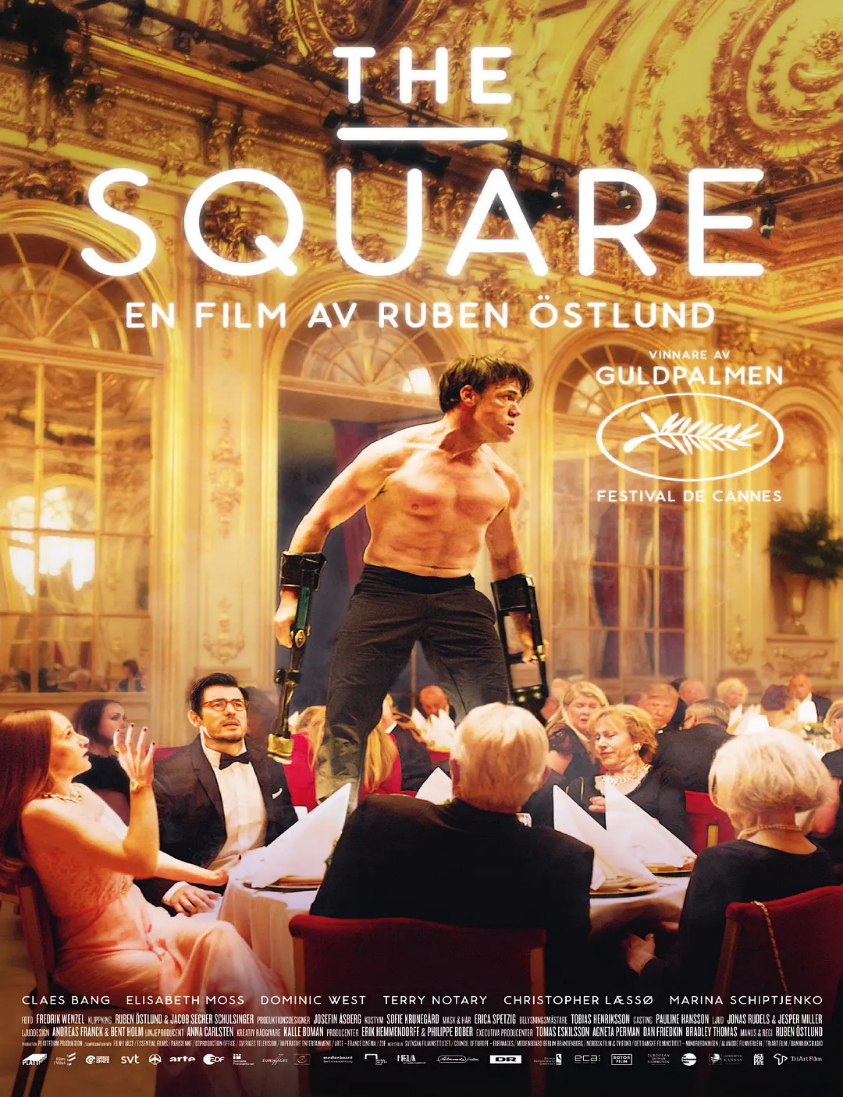The Square Truth under political correctness, absurdity and indifference – what kind of society, what kind of art?

Europe’s Cannes Award: Presenting Two Sides of Political Correctness To put it more broadly, Europe (or Europe and America), with its deep Christian tradition, also has a tradition of atonement; the religious spirit has implicitly determined a secular habit of reflecting on and reflecting on the sins or shortcomings of history or the present. Therefore, in order to remove the various colonial and aggressive activities dominated by Europe in recent history, Europe after World War II, through reflection and atonement, became the most tolerant, pluralistic and accepting civilization and political subject. This is reflected in the popularity of post-colonial thinking, which has strongly influenced both the cultural world and the choices of civil society, transforming Europe from an aggressor and colonizer to a cautious and determined defender of political correctness, fearful of offending others; and in the turmoil in the world today (especially in the Middle East), Europeans are very willing to take responsibility, attributing today’s scourge of war and displacement of refugees to their own creation In the process of atonement, Germany, which was once extremely exclusivist under the Nazi rule, is at the forefront of atonement and self-reflection, opening its doors and embracing the refugees, and making the people of the world one family.
In fact, from the psychological structure, self-reflection and atonement also bring Europeans a strong sense of superiority – just as when fighting military power, I can invade and defeat you, and suppress you by force; now in the era of peace, fighting moral sense, I can take the initiative to atone for my sins, and can tolerate and accommodate you, also because I have a higher state of mind. Although the external form of competition has changed (from military competition to moral competition), the superiority of the European psychological structure remains unchanged.
But then again, Europe has every reason to be superior. Military is the hard power, not to mention that morally a nation that knows how to introspect is definitely better than a nation that thinks it has great values. Europe is immersed in such a sense of superiority, and because it is worth it. But know that superiority in the heart is fine, atonement and self-reflection are also worthy of esteem, but sometimes self-reflection goes too far, overkill, from one extreme to the other, that will bring new problems, not only to correct the mistakes of the past. In Europe today, reverse discrimination due to pervasive political correctness has become a widespread problem. It is in this historical shock that a large number of Europeans have become politically correct fundamentalists, morally superior and overly tolerant, refusing to criticize the other for fear of turning back into aggressive “colonialists”; not only that, but these politically correct fundamentalists are also harshly critical of their own people, defensive and forbidding them to raise their critical voices, saying Criticism of the weak is fascism, and one must be a defender of the apparent harmony – thus, the so-called “weak” become the powerful and unscrupulous “torturers “Because anyway, it will not be restricted by public opinion.
I think the fact that “Square” won in Cannes is still a consistent manifestation of European superiority, because on the one hand, the film is a work of introspection and criticism of the sins of the present – you know, this kind of self-criticism and criticism of reality can be regarded as reactionary literature and art in a certain country, and must be strangled in coincidental infancy Europeans (mainly the middle and upper classes, represented by the film’s hero, the senior curator of the Museum of Fine Arts, Christian, and of course the Cannes jury and the film-going public) are happy to see themselves being satirized and exposed, and not only do they not hide it, they also give it a prize, which is a manifestation of self-confidence and superiority. On the other hand, and more importantly, the film is not a silly “politically correct” spokesman, presenting a single aspect of values and shaking from one extreme of history to another. On the contrary, the film is particularly valuable in presenting multiple voices, including a ruthless refutation of human indifference and concern for the underdog – but more crucially, it is also a metaphorical or realistic portrayal of the human evil of the underdog, and the absurd reality of a politically correct situation. Although the director seems to be satirizing the upper middle class, the senior curators of the museum, he does not present a clear critical or satirical stance on most of the issues, but rather chooses representative realities for the film, thus allowing the audience to choose their own stance. Therefore, what I may find absurd and ridiculous, other viewers may find normal and unparalleled.
Let me give you a few examples of the author’s reflection on the two sides of “political correctness”, or more precisely, a non-judgmental and direct presentation of European (Swedish) reality:Christian, a senior curator, went to 7.11 to pick up a parcel and met a female homeless person sitting in the corner, who asked him for money, and he smiled and said he didn’t have any, but he could buy her food; she was impatient, but she also ordered food, and commanded Christian to buy a chicken sandwich; Christian turned around to buy it, and she continued to yell, saying that she didn’t want onions in the sandwich, which she took for granted. Christian had something to do with himself, but still bought it for her, and finally dumped it on her, leaving a sentence: “Your bread, onions pick yourself”. Here, the director did not present any position; position naturally by the audience to decide: some people may feel Christian hypocrisy, do fake good people; some people seem to feel a great pleasure. Here, we cannot help but reflect.Does political correctness mean that the weak are justified? What limit should be reached to help the weak?




